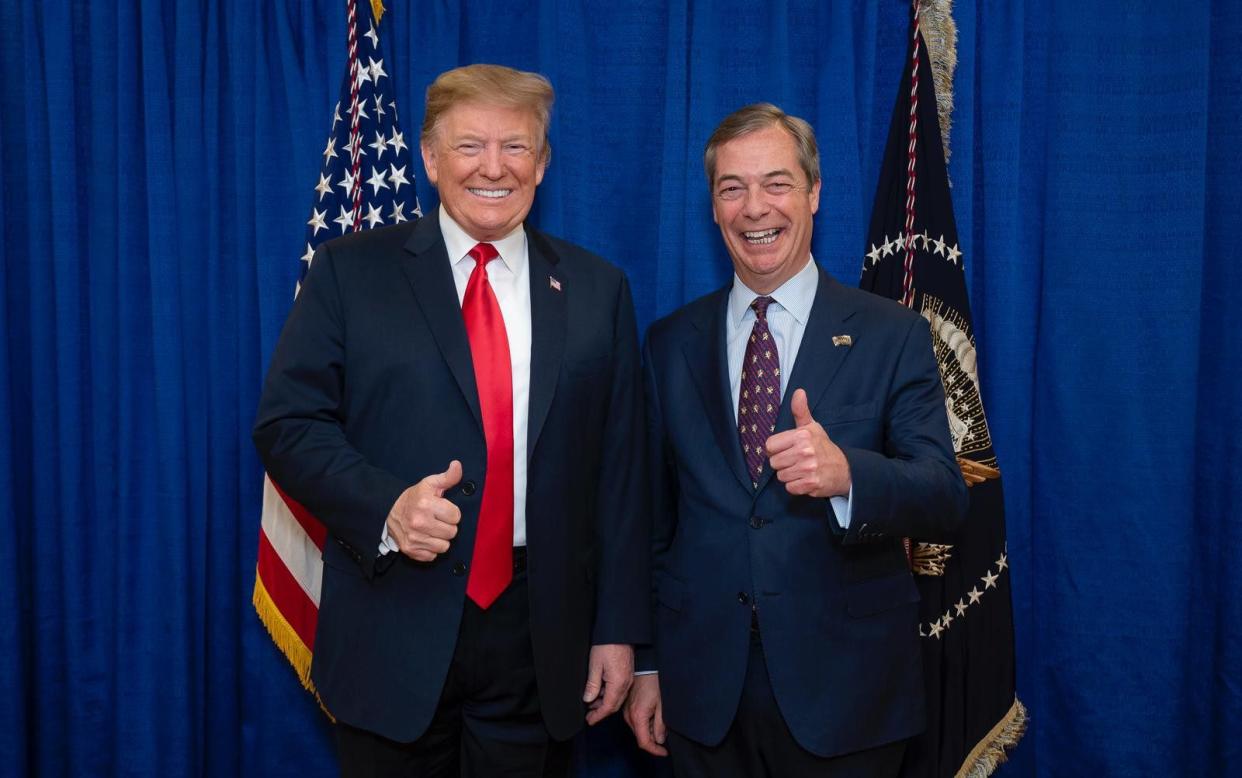British Conservatives can’t ignore Trump’s friendship

- Oops!Something went wrong.Please try again later.
Donald Trump is a man who usually settles for the best of the best, or nothing at all. His bombastic attitude befits his current status as the most recognisable man in the world – the former leader of the free world with an overwhelming chance of retaking the mantle come November.
It’s strange, then, the general refusal by the British press to engage with him in his own words. GB News host and perennial candidate for Parliament Nigel Farage is the notable exception.
Physically, the two men could not be more different. Trump’s confidence is such that he feels able to negotiate with autocrats around the world, while Farage displayed the sort of nervous enthusiasm one might feel during a first date.
Any nervousness was misplaced: Trump is far from the loose-cannon his detractors portray him as. The repetition of his thoughts on Nato – America will “100 per cent” remain in the alliance on the condition that Europe pays her fair share – showed again that Trump’s brand of conservatism, while unpopular in some quarters, is entirely coherent.
It’s disappointing that we didn’t get the former president’s thoughts on Barack Obama’s visit to No.10 Downing Street. After-all, Rishi Sunak’s willingness to cosy up with a former Democratic president – and outspoken critic of Brexit – is precisely the sort of mistake the British centre-right have been making for years in their trans-Atlantic relationship building.
The special relationship has long been a totem of British Conservatism; yet Trump is rarely brought into the equation. Trump is a confirmed Anglophile, being particularly proud of his Scottish ancestry, who extended the offer of a “massive” post-Brexit trade deal; this comes through in the interview through Trump’s copious praise of the late Queen Elizabeth.
By contrast, President Biden was reported to want to “punish” Britain; yet, it was Trump who seemed to excite more anxiety among Conservatives. Britain’s global reputation has weighed heavily on debates about migration, yet, in a changing world, our “soft power” interests might be objectively enhanced by the likes of Nigel Farage.
That Farage is currently a minor figure in British politics makes Trump’s obvious rapport with him all the more significant: the moment a right-wing figure emerges with whom he can do business, Trump is prepared to sacrifice his own interests to promote them.
The Trump playbook is the same as in 2016. Trump presents himself as a moderate candidate, who is unfairly criticised for saying what polling suggests the majority of people believe. Trump never presented himself as a ‘populist’ against the ‘new elite’ but as the opposite: a smart and financially successful man who was going to do what the elites wanted but failed to do – whether that be pulling America out of misjudged foreign conflicts or bringing back stable industrial jobs – because they were incompetent.
By contrast, Conservatives in the UK have embraced performative radicalism for actions well to the left of the public. They sideline powerful potential allies for no conceivable reason. A ‘British Trump’ has not yet presented himself. Until they arrive, the UK would do well to cultivate friendships with the man himself.

